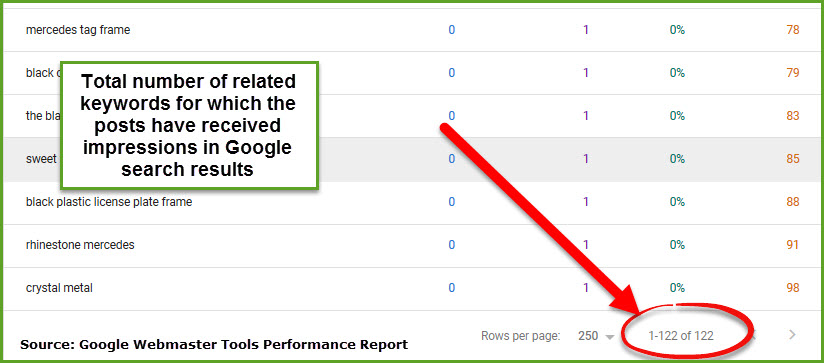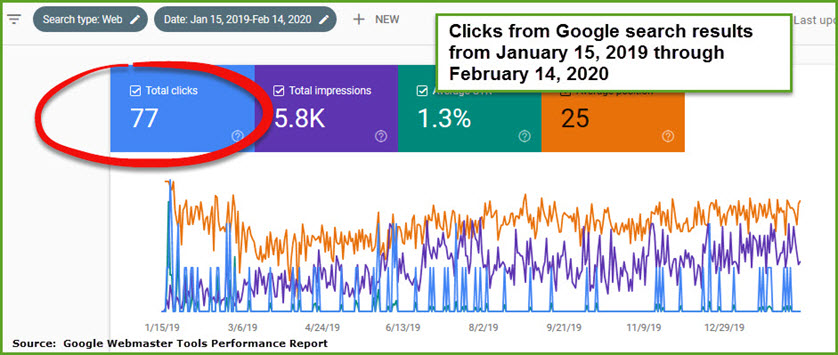
“How many words should I write for my keyword?”
It’s a question that comes up frequently in my email.
I believe there are two main reasons this questions is important to bloggers and content creators.
The first has to do with ranking in Google. Content creators want to know how much work will be required to get organic traffic.
If they don’t rank well they don’t get organic traffic. If they don’t get traffic they can’t achieve a desired goal.
For example, without traffic a website owner might not make sales or build an email list unless they buy traffic..
The question implies there is a magic number of words required in order to rank well.
There isn’t.
The second reason is because there are people who want to build a successful website but they hate to write or are short on time. They worry the world of internet marketing is out of reach.
Website Approach
Hate to write or short on time? It doesn’t mean you’re down and out.
Can people who don’t like to write (or are short on time!) still operate a successful website?
Yes!
First, one could always outsource the content creation work. They could hire writers so that they didn’t have to do the writing themselves.
Of course, not everyone has the funds to hire writers.
So, can someone who doesn’t want to invest in outsourcing AND also hates to write create a successful website?
The answer is still yes!
“You need to build the site using a niche and keyword research method that is specifically designed to work with shorter content.”
That makes sense, right? Not all keywords are the same. The amount of content needed to thoroughly cover the topic of one keyword is going to be different than the amount of content needed to thoroughly cover another keyword.
For example, the amount of content required to write about a “white oak dining table” is different than the amount of content required to write about “how to install and configure a new WordPress site”.
What kinds of niches and keywords can work for those who don’t like to write?
That’s exactly what this case study uncovered.
The Case Study
Short content posts and their Google performance
I often create demo websites for my students and customers so that they can see what their own website should look like as they build.
One such demo site consisted of just 4 website posts with a TOTAL of 282 words of written content.
As a result, it’s perfect to show how short articles can rank well in Google and also bring in targeted traffic.
The Website Details
It all started 13 months ago
I registered the domain name on December 9, 2018.
Four posts were published on January 15, 2019 and TWO posts were published on February 10, 2020:


** I excluded the two posts published February 10, 2020, for the purpose of this study.
I calculated the results using the data from January 15, 2019, through February 14, 2020. The two posts published with 4 days left in the study had no measurable impact on the results.
Sign up below to get the case study URL and see the live site. It’s inside my 2020 Content Marketing Report:
You’ll also get a number of performance metrics gathered from my own website results.
The Post Details
Four posts and a total of 282 words
The post content length has not changed since the posts were published. They average 70.5 words each.
The position in Google for each post as of February 15, 2020:
- Post #1 – 84 words – position in Google = #7
- Post #2 – 57 words – position in Google = #13
- Post #3 – 67 words – position in Google = #5
- Post #4 – 74 words – position in Google = #3
The position in Google was determined by using a private window in Firefox. I searched for the title of each post. Each post’s position in Google search rankings was documented.
According to Google Webmaster Tools the posts are receiving impressions in Google search results. There was a total of 122 related keywords and phrases in the report. This means the posts are ranking for more than just the post title keyword:


The posts are also receiving traffic from Google search results:


(Complete the form above to see the site and you can check current rankings.)
Clicks and Conversions
Traffic showed up within 30 days
Content marketers don’t just want to rank well in Google…they want targeted traffic that delivers results.
In the case of these 4 posts there were 482 clicks on the Amazon Associates affiliate links INSIDE the posts during the 13 month period (one post had multiple links) and a conversion rate of 5.32%.
So, YES, the site made sales of products promoted inside the posts!
If you hate to write or are short on time are you now feeling more hopeful?
The Findings
What does it all really mean?
What conditions allow a website with just four posts and 282 words of writing to get traffic, clicks, and sales?
First, the keyword methodology I used absolutely played a role.
The keywords and post titles were all selected using my Cluster Madness Blueprint strategy.
Each post targeted a long-tail, low competition keyword.
When the competition is low it’s easier for new content to rank well in Google.
Second, these keywords did not require a great amount of written content. Choosing simple vs complex keywords means the topic can be covered with less writing..
Third, the posts all revolved around a single topic. That doesn’t mean each post targeted the same keyword. It means that they were targeting closely related keywords. That is key not only for short content posts but also for long, rich posts and articles.
This has to do with relevancy. Google’s mission in life is to deliver the best, quality results to searchers. Of course they’re going to appreciate a site with a cluster of related, unique content.
If you start a blog about sewing you could write about many different aspects of the hobby.
You might have a post about how to make a dress, another on how to choose fabrics, and another on how to buy a new sewing machine.
See how far apart those topics are? They’re all related to “sewing”, of course, but they’re not as tightly focused as they might be.
They are all topics you’d want to write about eventually.
But what if you started to write ONLY about how to choose fabrics for sewing projects? What if you wrote 10 posts tackling only different aspects of fabric selection? Can you see how you might become the go-to source for searches related to that subject?
That is a secondary finding of this case study. Clusters of tightly knit content can help a site rank well in Google for keywords related to that cluster.
If you struggle to rank well in Google start with a very, narrow subniche. It’s an excellent starting point for beginners and/or a great way to break into a competitive niche.





I think the above statement you wrote ‘the amount of content required to write about a “white oak dining table” is different than the amount of content required to write about “how to install and configure a new WordPress site”’ says it all.
That really hit home with me. And makes so much sense.
Thanks!
Glad to hear that, Donna! Thanks!
This was incredibly helpful. Thank you!
Thanks, Michelle!